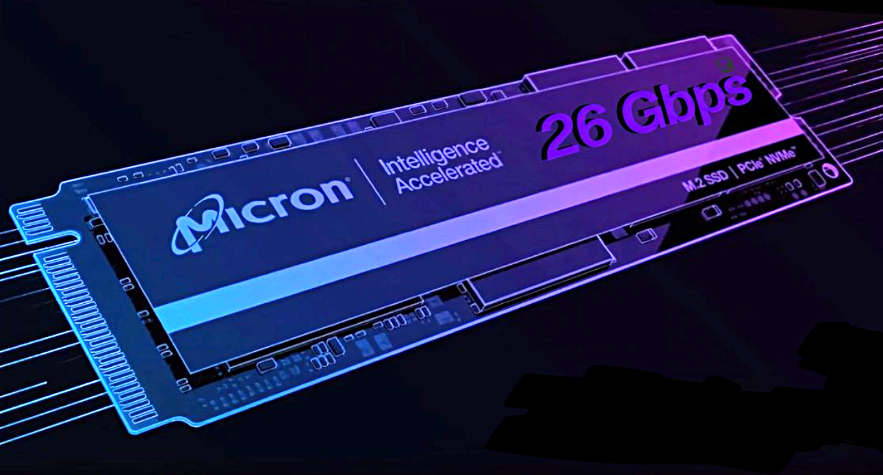Micron Technology has produced PCIe Gen6 datacenter SSD technology, as part of a portfolio of memory and storage products to support demand for AI.
The PCIe (Peripheral Control Interconnect Express) bus connects a host computer’s CPU to peripheral device controllers for devices such as SSDs, and graphics cards. The technology was showcased at this week’s FMS: The Future of Memory and Storage conference, in Santa Clara, California. At the conference, the company delivered a keynote focussing on how Micron’s products are impacting AI system architectures, while enabling “faster” and “more power-efficient” solutions to manage large datasets.

“AI and other data-intensive workloads are driving the need for higher performance storage in the datacenter,” said Alvaro Toledo, vice president and general manager of Micron’s datacenter storage group. “Our development of the industry’s first PCIe Gen6 SSD for ecosystem enablement is designed to meet these growing future demands, providing unprecedented speed for our customers’ highest-throughput workloads.”

PCIe 6 is twice as fast as PCIe 5, with a 16 GBps per-lane speed. The specification can be accessed here. Current PCIe 5 SSDs, like Micron’s 9550, are delivering up to 14 GBps sequential read bandwidth across 4 lanes. With its PCIe Gen6 datacenter SSD technology, the firm says it is delivering sequential read bandwidths of over 26 GBps to partners. Host computer motherboards and SSDs supporting PCIe 6 could appear from next year onwards.
Micron reckons it is kickstarting a Gen6 PCIe ecosystem.
In June, Micron said its revenues rose 81.5 percent year-on-year in the third quarter ended May 30, 2024, as demand for AI server memory rocketed. Sales were worth $6.8 billion, compared to $3.8 billion a year earlier, when the memory market seemed to bottoming out.








